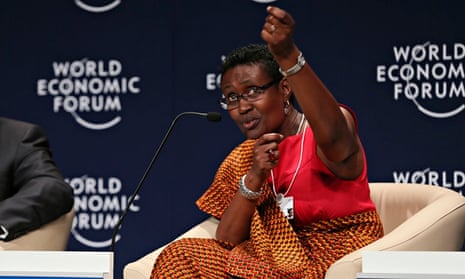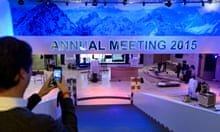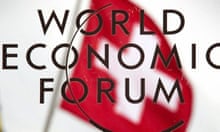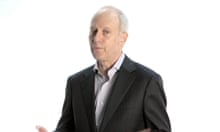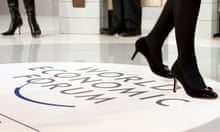On current trends, according to Oxfam, just 1% of the world’s population will by next year own more than half of the world’s wealth, up from 44% in 2009. This sharp acceleration in inequality is likely to frame the agenda at the annual World Economic Forum this week, and it will make the informal conversations that are its hallmark even more important than usual. Some of the 1% will be gathering in Davos for the opening events on Wednesday. So will representatives of the world’s poorest four-fifths, the 80% who now own a mere 5.5% of the wealth.
This gathering can appear to be a party for billionaires, UN functionaries, lobbyists and politicians who enjoy grandstanding on a global stage. But, as Winnie Byanyima, executive director of Oxfam International and one of the six co-chairs at this year’s WEF, told the Guardian on Monday, the increased concentration of wealth is dangerous and needs to be reversed. It is a source of global instability, it contributes to the number of migrants who risk their lives in the search for a living wage, it is coming to be recognised as a threat to global recovery and it is a major barrier to sustainable development.
This year has the potential to be a watershed. Two summits, one in New York in September to agree worldwide targets for sustainable development and the other in Paris in December, where negotiations for a global deal on action on climate change finally reach a climax, could set the agenda for a generation. Getting consensus on what sustainable development means, how to measure progress towards it, and how global north and south can work together to achieve it, will clear the path for Paris. The question that looks likely to emerge as the deal-breaker is the issue of extreme inequality.
No one expects agreeing sustainable development goals to come easily. Last week a global campaign, Action2015, was launched to try to shape the political environment. This week, while the mood is being set in Davos, the clause-by-clause negotiating actually begins in New York. The ambition, challenging by any measure, is to produce a transformative agenda that makes every government in the world reconsider its priorities. It means reshaping global development priorities, a next-generation shift from the current starting point of the pro-poor strategies that lay behind the millennium development goals. Those covered health, education and women’s rights, and in the 15 years from 2000 generated a series of measurable targets that, although often criticised for skewing priorities and providing misleading results, still worked effectively as rallying points for programmes.
This next generation of goals will be much broader. The current list, which ranges from ending extreme poverty to developing sustainable tourism, is the product of an unprecedented process of consultation that included a survey of 7 million people. Not surprisingly, it has produced an unwieldy total of 17 goals, which between them generate 169 targets. The purpose of many of the meetings in the next few months will be to narrow the list. Critics fear that if it is too big and unfocused then it risks being all too easy to ignore. Others warn that if the list is reopened then those who oppose some of the targets will take the opportunity to get them removed.
These are goals against which individual countries will be measured: the UK, for example, would prefer the relatively pain- free objective of ending extreme poverty to the challenge of ending extreme inequality. Yet campaigners, who include the Nobel-prize-winning economist Joseph Stiglitz, warn that including tackling extreme inequality as a goal would not be enough on its own. The real bartering will be around the question of an acceptable definition of inequality.
Davos is famously a place of private conversations and informal meetings that leave no trace yet linger to shape the agenda and play out over the year ahead. This is the place where, in the warm, thickly carpeted hotels and over cups of hot chocolate, the argument has to be won about making 2015 the year of peak inequality – the year when the trend towards the accumulation of more and more wealth into fewer and fewer hands that captured public attention last year in Thomas Piketty’s bestseller Capital finally went into reverse.
